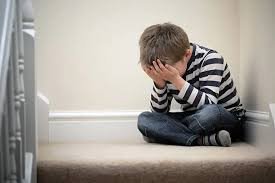Divorce is an increasingly common experience for many families, and while it marks the end of a marital relationship, its effects extend far beyond the couple involved. One of the most significant and long-lasting impacts of divorce is on children, who often find themselves navigating the emotional complexities of their parents’ separation. The dissolution of a marriage can have profound implications for children’s mental health, influencing their emotional well-being, social development, and overall mental health. Addressing these mental health issues early is essential to ensuring that children can cope with the challenges posed by parental divorce.
Understanding the Emotional Impact on Children
When parents divorce, children are often caught in the middle, struggling to make sense of the changes in their family dynamic. The emotional impact of divorce on children can manifest in various ways, depending on their age, personality, and the circumstances surrounding the separation. Younger children may experience confusion and fear, while older children might feel anger, sadness, or guilt. These emotional responses are natural reactions to the stress and uncertainty that divorce brings into their lives.
For many children, the primary concern is the fear of losing a sense of stability and security. The breakup of their parents’ marriage often disrupts their daily routines, forcing them to adjust to new living arrangements, schools, and social environments. This upheaval can lead to feelings of anxiety, insecurity, and helplessness, particularly if the divorce is contentious or drawn out.
The Long-Term Effects on Mental Health
The impact of parental divorce on children’s mental health can extend well into adulthood, influencing their emotional and psychological well-being over the long term. Research has shown that children of divorced parents are at a higher risk of developing mental health issues such as anxiety, depression, and low self-esteem. These conditions may arise as children struggle to cope with the emotional fallout of the divorce and the changes it brings to their lives.
One of the long-term effects of parental divorce is the potential for attachment issues. Children who experience divorce may develop insecure attachment styles, making it difficult for them to form and maintain healthy relationships in the future. This can lead to challenges in their romantic relationships, friendships, and even interactions with colleagues and peers.
Additionally, children of divorced parents may have a heightened risk of developing behavioral problems, such as aggression, defiance, or withdrawal. These behaviors can be a coping mechanism for dealing with the stress and emotional pain of the divorce. In some cases, these behavioral issues can persist into adulthood, affecting their social functioning and overall quality of life.
Academic Performance and Social Development
Parental divorce can also have a significant impact on children’s academic performance and social development. The emotional stress of divorce can make it difficult for children to concentrate in school, leading to a decline in academic achievement. The instability caused by changes in living arrangements, school transfers, and disruptions to their daily routines can further hinder their ability to perform well academically.
Socially, children of divorced parents may struggle to form and maintain friendships. The emotional turmoil they experience can make them more withdrawn or, conversely, more aggressive in their interactions with peers. They may also feel embarrassed or ashamed about their family situation, leading to social isolation and difficulty connecting with others.
In some cases, children may adopt maladaptive coping strategies, such as substance abuse or delinquent behavior, as a way to deal with the stress of the divorce. These behaviors can have serious consequences for their social development and overall mental health, making it even more important for parents and caregivers to provide the necessary support and guidance.
Supporting Children Through Divorce
While the impact of parental divorce on children’s mental health can be profound, there are steps that parents can take to help their children cope with the challenges of divorce. One of the most important things parents can do is to maintain open and honest communication with their children. Encouraging children to express their feelings and providing reassurance can help alleviate some of the anxiety and confusion they may be experiencing.
Consistency and routine are also crucial in helping children feel secure during a time of upheaval. Parents should strive to maintain a stable environment for their children with consistent rules, schedules, and expectations. This can help children regain a sense of normalcy and reduce the stress associated with the changes brought about by the divorce.
In addition to parental support, seeking professional help can be beneficial for children struggling with the emotional impact of divorce. Therapy or counseling can provide a safe space for children to process their feelings and develop healthy coping strategies. Mental health professionals can also offer guidance to parents on how to best support their children through the divorce process.
It’s also important for parents to avoid putting their children in the middle of conflicts or using them as messengers between parties. Shielding children from parental disputes and maintaining a cooperative co-parenting relationship can significantly reduce the emotional burden on children and promote their mental well-being.

